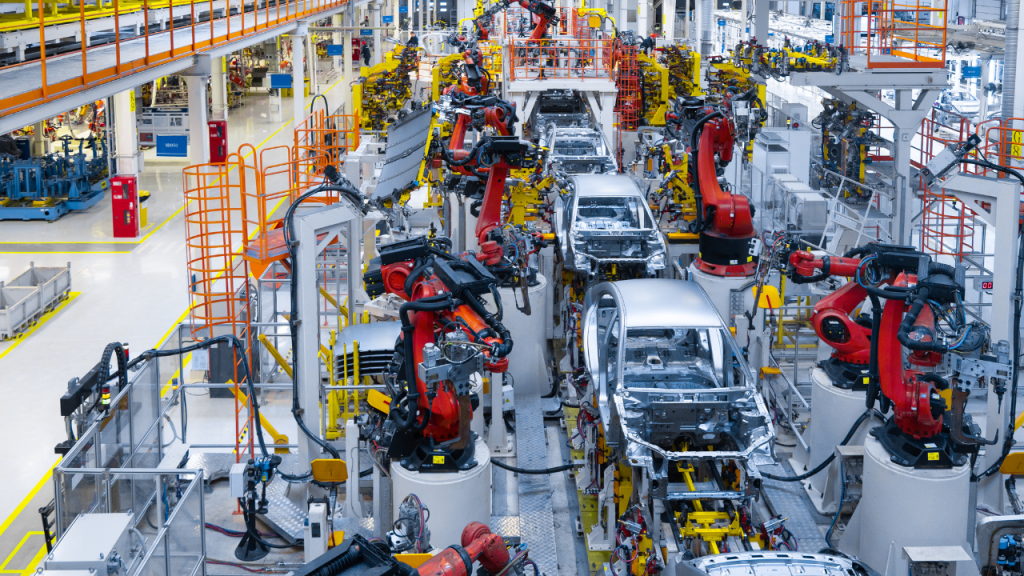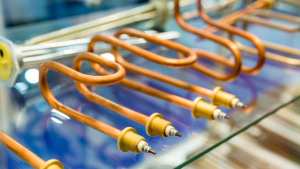The Pivotal Role of HVAC in Automotive and Manufacturing
The integration of Heating, Ventilation, and Air Conditioning (HVAC) systems into the industrial and automotive sectors has been a revolutionary step in advancing technology, efficiency, and worker welfare. Within these high-precision and demanding fields, the specific benefits of HVAC systems are not only valued; they are considered essential.
Why HVAC Matters in Automotive and Manufacturing Industries
- Regulating Indoor Climate: Constant temperature and humidity levels ensure optimal working conditions and safeguard machinery that can be sensitive to environmental changes.
- Enhancing Air Quality: Effective HVAC systems filter out pollutants, dust, and other contaminants, which is crucial for health standards and clean production processes.
- Improving Energy Efficiency: Advanced HVAC technologies can significantly lower energy consumption by heating and cooling the premises more effectively.
Enhanced Precision and Quality Control
The automotive industry thrives on precision. Fine margins often separate high-quality products from the mediocre. HVAC systems maintain stable temperatures and humidity levels that are crucial for material handling, application of coatings, and the curing of adhesives. Without such environmental control, the expansion or contraction of materials could lead to component misalignments and imperfections.
In manufacturing, especially electronics, HVAC systems ensure a dust-free and properly humidified environment. This prevents static electricity build-up, which can be disastrous when assembling sensitive electronic components.
Boosted Productivity and Worker Comfort
The correlation between thermal comfort and worker productivity has been well-documented. Extreme temperatures can lead to decreased focus, increased fatigue, and a higher risk of mistakes. By regulating temperatures, HVAC systems create a more comfortable and safer work environment. This increases morale and allows employees to perform at their best capabilities.
Energy Efficiency and Cost Savings
Modern HVAC systems in industrial settings come equipped with sophisticated controls and sensors that optimize energy use, reducing operational costs over time. Advanced building automation systems can pinpoint where and when to apply heating or cooling, leading to less energy waste. Thus, HVAC systems are an investment in sustainability and long-term economic efficiency.
Compliance and Health Regulations
Regulatory bodies often require specific ventilation for both staff safety and process longevity. HVAC systems aid compliance with these regulations, ensuring a healthier workplace and reducing the risk of costly shutdowns or fines due to non-compliance.
Extended Equipment Lifespan
Heat can be detrimental to machinery, leading to excessive wear and breakdowns. Conversely, moisture can cause rust and degradation. HVAC systems help mitigate these risks by creating an environment that protects the integrity and longevity of the machinery used in production.
Better End-product Storage
From automotive parts to pharmaceuticals, the storage of end-products in manufacturing is as critical as their production. The correct temperature and humidity levels prevent degradation, preserve quality, and ensure customer satisfaction.

Sustainability in HVAC Systems
The push toward sustainability and greener practices has not skipped over the HVAC industry. With rising energy costs and a global emphasis on environmental responsibility, the design and operation of HVAC systems have become more important than ever. Here are some trends driving change:
- Smart Automation and Controls: Utilizing building automation systems allows for better monitoring and management of energy use, reducing waste and enhancing overall efficiency.
- Advanced Filtration Technologies: High-efficiency particulate absorbing (HEPA) filters and other developments promise cleaner air without the penalty of higher energy consumption.
- Use of Renewable Energy Sources: Solar-powered and Geo-Thermal HVAC systems are gaining traction as a reliable and sustainable alternative to conventional energy.
- Maintenance and Upgrading: Regular maintenance routines are crucial for long-term sustainability. Also, upgrading to newer, more efficient systems can lead to significant energy and cost savings.
The Path Forward
It’s clear that HVAC systems play a vital role in the functionality and environmental footprint of automotive and manufacturing plants. Eco-conscious individuals and professionals in the field must advocate for and invest in smarter and greener HVAC solutions that not only protect our planet but also improve bottom lines. For those managing these large-scale facilities, or servicing them as HVAC professionals, there are certain best practices that should be observed for optimal performance:
- Regular Maintenance Checks: Routine inspections and cleaning can prevent costly breakdowns and maintain efficiency.
- Educating Staff: Training employees on the importance of energy conservation and how to work with HVAC systems can support sustainability efforts.
- Investing in Technology: Although initial costs can be high, investments in newer technologies often pay off through energy savings and increased productivity.
Conclusion
In summary, HVAC systems serve as a backbone in the automotive and manufacturing industries. The benefits they provide extend beyond mere temperature control; they touch every aspect of production, including quality control, worker welfare, and operational costs. Whether you are an automotive manufacturer, an industrial engineer, or an HVAC technician, an appreciation for the nuance and necessity of HVAC systems in your industry is crucial for continued success and development.
For professionals looking to stay ahead of the curve, investing in and staying knowledgeable about the latest HVAC technologies can provide a competitive edge and elevate the standard of your work environment. It is an undeniable truth that a controlled climate is key to optimized production and a hallmark of industrial innovation.
—
Thank you for reading our take on the benefits of HVAC in the automotive and manufacturing arenas. Feel free to reach out with questions.
New Hudson, MI #248.486.6500
West Branch, MI #989.999.4822













